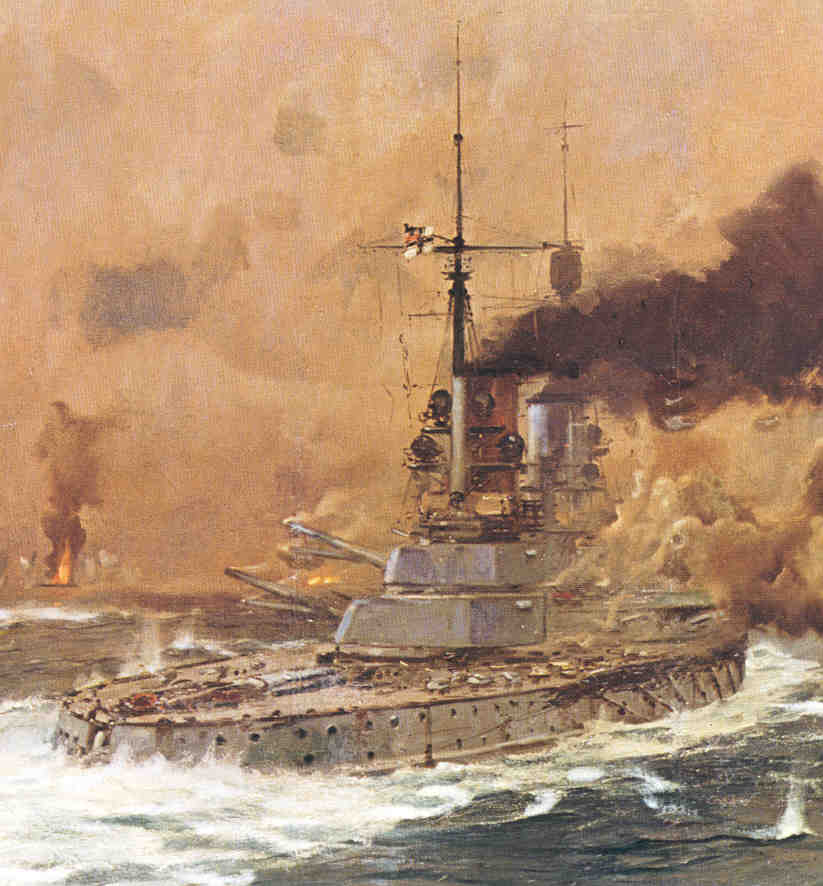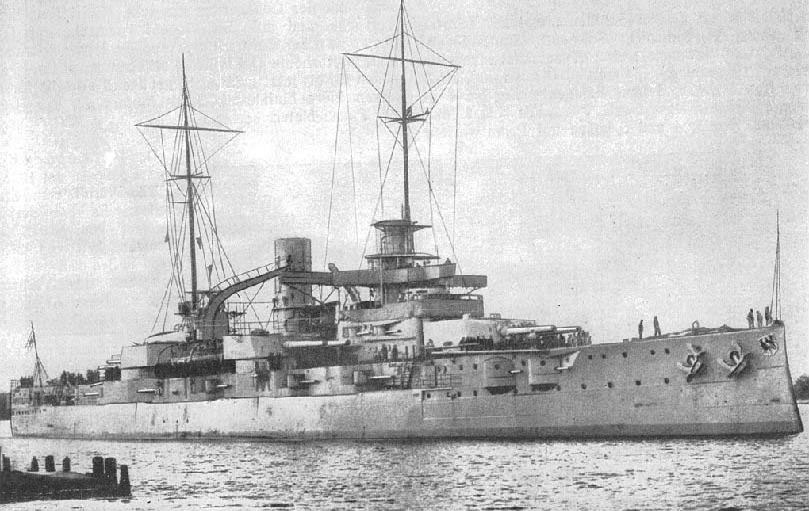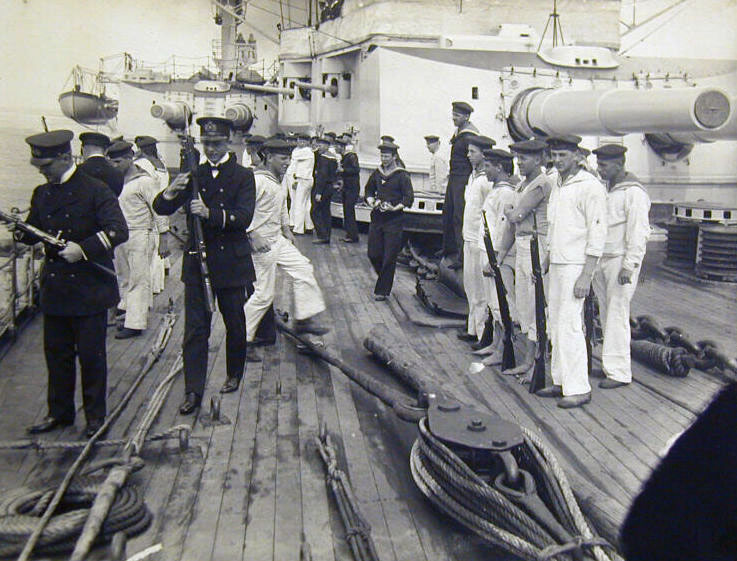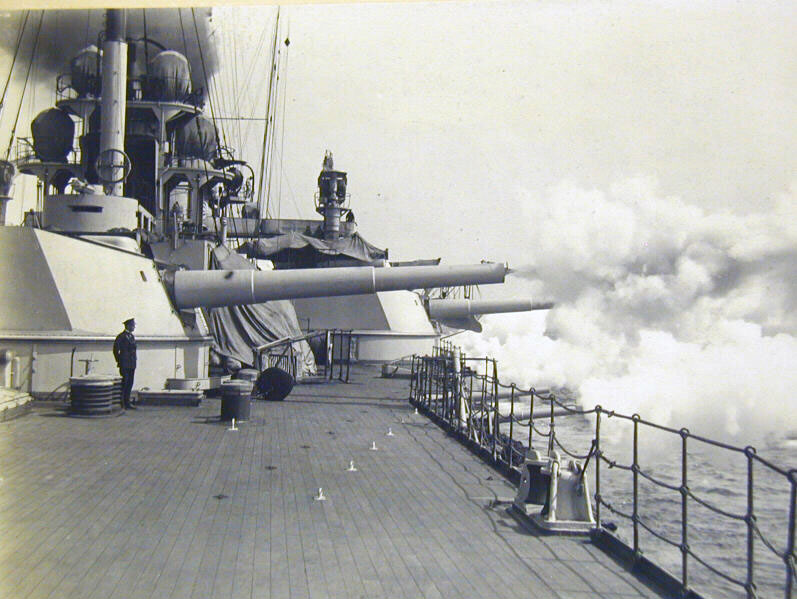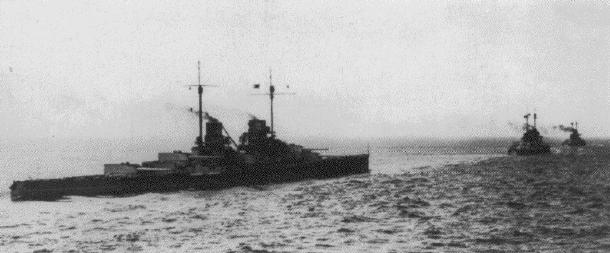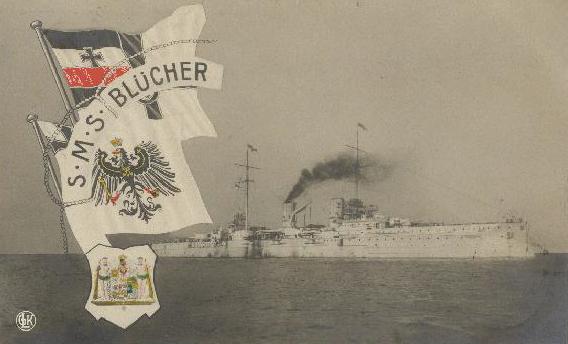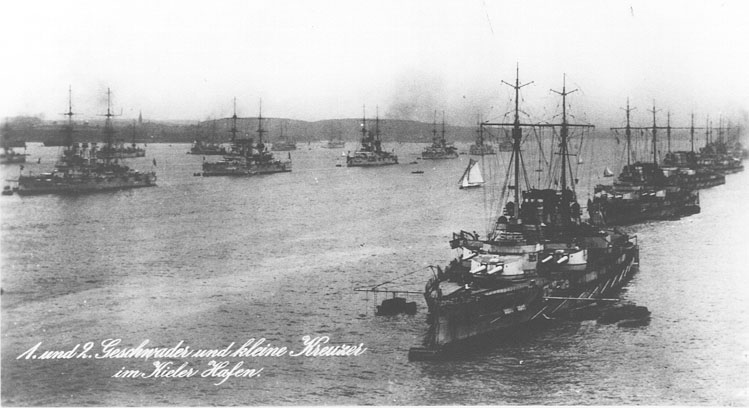The outbreak of the Great War saw the rapid
expansion of marine forces into division size
units. Drawing on Seebatallion reservists
and conscripts, the naval infantry brigade under
Generalmajor von Wiechmann grew into the
first Marine Division; an additional Marine
Division was formed in November 1914. These two
divisions formed Marine-Korps-Flandern
[Marine Corps Flanders] under Admiral Ludwig von
Schröder (known in Germany as the "Lion of
Flanders"). In early February 1917 a third
Marine Division was organized thus giving the
naval infantry corps a strength of 60-70,000
men.Marine units fought in 1914 at Tsingtao
and Antwerp, in 1915 at Ypres, in 1916 on the
Somme, in 1917 in Flanders and during the 1918
offensive battles in northern France.
